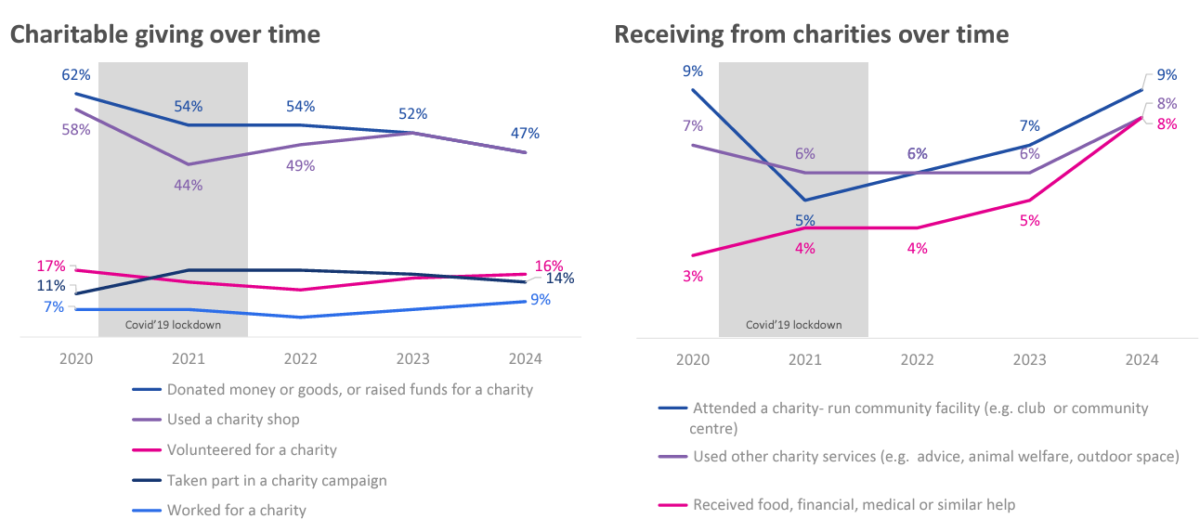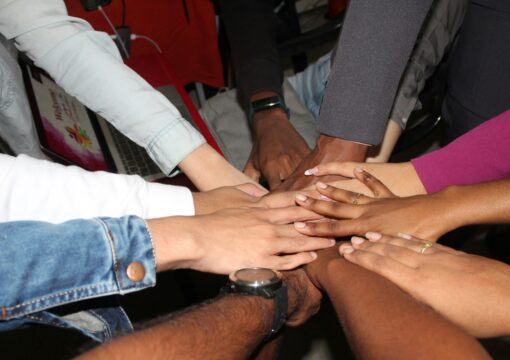Recently, the Charity Commission has published its research into ‘Charities and their relationship with the public,’ as conducted by BMG. The focus of this study is to gauge how people perceive charitable organisations in England and Wales.
Why should charities care about their wider cultural perception?
At the heart of all charitable activities is public benefit. Your charity must benefit the general public, or a significant subsection, to achieve its purposes. Not all charities are reliant on donations, contrary to popular belief, but most need public support, either in terms of volunteering, funding, or spreading awareness. Therefore, how people interact and think of charities is intrinsically linked to what they can do.
In the midst of the cost-of-living crisis and international conflict, charities are currently playing an integral part in finding solutions to some of society’s most pressing issues. Many people, particularly those who have specifically benefited from their work, recognise what vital impact charities have made. However, some doubts still persist with regard to effective management and proper use of resources.
You can read the full report here.
What follows is a brief summary of the findings of this research…
Trust
Trust in charities has been broadly stable since 2020 and the latest research results demonstrate that trust is at its highest level since 2014.
The average person who completed this survey would rate their overall trust in charities at 6.5/10. This has risen from 6.3 in 2023 and 6.2 in 2022, following a low of 5.5 in 2018, due to a number of high-profile scandals.
In 2024, almost 6 out of 10 people say they have high trust in charities, while 1 in 10 have very low trust.
This positive news means charities only rank below doctors in terms of trust. Generally, people are likely to implicitly trust charities and their aim to do good until something happens to change this.
Interestingly, people tend to trust charities:
- That are local or smaller
- That align with their personal views
- Where their impact is perceptible
- That best manage their money
Most recent news coverage of charities has left the public feeling positive about charities (or indifferent). Only 15% of people said it made them feel more negative.
Distrust
Critical media coverage is particularly influential in causing distrust in charities. Where wrongdoing is uncovered the research shows that redeeming their reputation is almost impossible. However, the public are cautious not to let the actions of a small number of charities influence how they feel about others.
People are more likely to mistrust charities:
- Where they disagree with their actions
- That are large and national/international
- Without readily available (financial) information
The Charity Commission
Those with less knowledge of the Charity Commission tend to trust charities less.
47% of the people who took part in the survey have heard of the Commission, with a 1 in 5 claiming they know it well. However, there has been a slow decline in awareness since 2021.
The majority of participants who claim to know the Commission broadly understand its role, but not the intricacies of its activities. Questions remain about how it regulates charities.
Around half of the public are more likely to support charities after learning about the role of the Commission. This regulatory body reassures them that the sector is operating to a high standard. They want information about charities to be readily available, particularly financial details.
The research shows that people think that although the Commission is effective in regulating charities, it will undoubtably miss some wrongdoing. Consequently, they believe the Commission should focus more on identifying this.
Role of charities
Fewer people are donating to charity (or using charity shops), while demand for charities’ services has risen.

(Public Trust in Charities 2024. Charity Commission in England & Wales, BMG. Page 22)
This reinforces the need for charities, but concerningly their support is reducing.
Trustees
As well as the research into public trust, the survey also explored how charity trustees perceive their role.
Most trustees share the public’s high expectations of charity’s conduct, with 61% believing that because of its registered status, their charity’s standards should be higher than other organisations.
Overall, trustees said they have high levels of confidence in their responsibilities, predominantly understanding what decisions to make. Those aware of the Commission demonstrate they are better informed.
However, the research finds that trustees are less clear on what they should not be doing, including making decisions influenced by personal views, or avoiding awkward questions. Also, they feel less confident dealing with conflicts of interest, and overseeing charity finances.
Perspective
‘These findings are encouraging, demonstrating that charities collectively are once again firmly trusted by the public, making a visible, essential difference locally, nationally and globally. But there is no room for complacency, for charities or for us as regulator.
The new findings point to the challenging financial environment charities are operating in, with a decline in the number of people giving to charity, whilst the high cost of living appears to be driving more people to access charity services. In these financially challenging times, charities must continue to show people how they deliver on their purpose, including how every penny makes a positive difference.’
David Holdsworth, Chief Executive of the Charity Commission
How do you boost trust in your charity?
A running theme in the study is that goodwill is directly related to how charities manage their money. In the current climate, demonstrating prudent stewardship of funds is therefore more critical than ever. Avoid unnecessary risks. Clearly show to both your donors and the public at large how your money is being used. Prove that you are fulfilling your purpose.
Burton Sweet has a longstanding commitment to charities and civil society organisations, offering practical, professional and passionate support. To ensure your financial resources are being managed to best effect, you might consider our services including:
- Bookkeeping, training and setting up accounting systems
- Bespoke accounts preparation
- Public benefit or TAR reviews – helping you tell your story well
- Guidance on reserves policies, risk management, and other key disclosures
- External scrutiny services
We want to assist you, so you can deliver effectively for the communities you serve and show the good you do.




